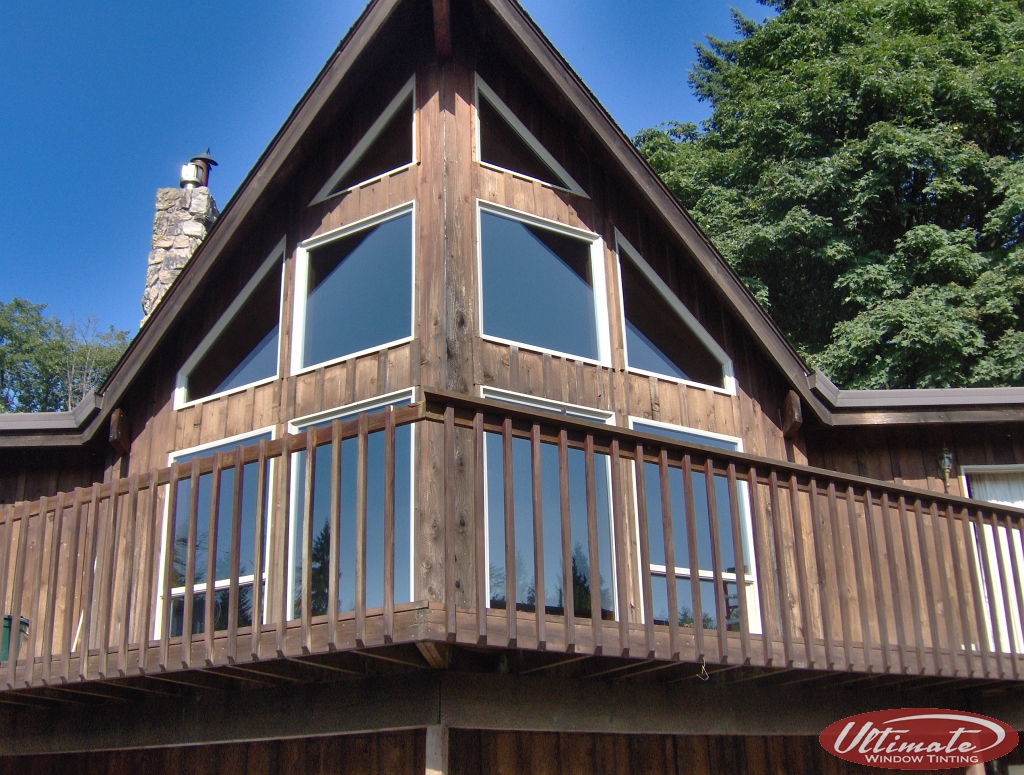Residential Window Tint for Large Windows: Keep Comfort and Style
Wiki Article
How Residential Home Window Tinting Improves Your Home's Power Performance
Residential window tinting offers a compelling service for homeowners looking for to boost energy effectiveness within their home. By applying specialized movies to windows, it successfully minimizes heat transfer, therefore supporting interior temperature levels and lessening the demand for extreme home heating or air conditioning. This not only curtails energy intake but also gives a much more comfy environment by mitigating glare. Nonetheless, recognizing the subtleties of just how tinting jobs and selecting the proper type for your home can be crucial. Oddly, what aspects should one consider prior to making this investment?Understanding Window Tinting
Recognizing window tinting is necessary for homeowners looking for to boost both comfort and energy performance in their living spaces. Residential Window Tint. Home window tinting includes the application of a slim movie to the inside or outside surface area of glass home windows. This film can substantially modulate the amount of sunshine and heat that enters a home, therefore affecting interior climate problemsThere are various kinds of window tinting movies readily available, each with distinctive buildings. Dyed movies absorb solar energy, while reflective films disperse it away from the glass surface. Ceramic films offer an equilibrium of presence and heat rejection, making them a prominent option amongst home owners. The efficiency of home window tinting is typically determined by its Visible Light Transmission (VLT) portion, which suggests just how much light can go through the film.
Advantages of Energy Efficiency
Window tinting not only enhances appearances however additionally plays a considerable function in enhancing energy performance within household spaces. By minimizing warmth transfer via home windows, colored films create an extra steady interior climate, which can cause substantial reductions in energy usage for heating and air conditioning. This energy efficiency translates into reduced energy costs, supplying house owners with considerable lasting financial savings.
Additionally, window tinting boosts the comfort of living areas. By reducing glare and blocking dangerous UV rays, colored home windows develop a more pleasant atmosphere, which can cause boosted well-being for passengers. The protection against UV rays also helps protect furnishings and floor covering from fading, contributing to the long life of household things.
Exactly How Tinting Functions
Tinting films run via a combination of advanced products and technologies made to control the amount of solar power entering a home. Primarily made up of polyester, these movies usually incorporate ceramic or metal fragments that absorb and reflect warm. This twin capacity allows them to dramatically reduce the penetration of ultraviolet (UV) rays and infrared radiation while allowing visible light to pass through.The efficiency of window tinting is measured by its solar heat gain coefficient (SHGC), which indicates how much solar power is transferred with the home window. Lower SHGC worths are preferable as they signify higher warmth rejection. Additionally, window colors can feature a range of tones, enabling homeowners to tailor their aesthetic preferences while boosting power effectiveness.
Additionally, these films function as a barrier, stopping warm loss during cooler months by reflecting interior heat back right into the living room. This thermal insulation impact complements the cooling directory benefits obtained during warmer months, adding to a well balanced indoor environment year-round. By handling solar power efficiently, domestic home window tinting not visit our website only boosts comfort but likewise plays an important function in decreasing power intake and decreasing utility expenses.
Choosing the Right Tint

There are different kinds of home window movies available, consisting of dyed, metalized, and ceramic. Ceramic films offer excellent warm control without compromising presence and are extremely long lasting, making them a prominent option.
Visible light transmission (VLT) is one more vital aspect, as it suggests the quantity of all-natural light that can travel through the tinted glass. Property owners need to pick a tint with a VLT that enhances their lighting choices while still supplying appropriate glow reduction.
Additionally, evaluating the solar warmth gain coefficient (SHGC) can aid establish exactly how well a tint can obstruct warm from sunlight. A reduced SHGC indicates much better warm control, ultimately boosting energy effectiveness.
Installation and Upkeep Tips
Appropriate setup and maintenance are essential elements in maximizing the benefits of household window tinting. Experts additionally use specialized devices and strategies, which can improve the sturdiness and performance of the color.Adhering to setup, upkeep is necessary to extend the life of the home window film. It is recommended to wait at the very least thirty day prior to cleaning up the colored home check my reference windows to allow the sticky to heal totally. When cleaning, utilize a soft fabric and a gentle, ammonia-free cleaner to stay clear of harming the movie. Stay clear of unpleasant materials that might damage the surface area.
Resolving these concerns promptly can stop further damages and maintain energy effectiveness. By sticking to these installation and upkeep suggestions, house owners can guarantee their window tinting continues to offer considerable energy savings and convenience for years to come.
Conclusion
In conclusion, domestic window tinting offers as an effective service for boosting power effectiveness within homes. By lowering warmth transfer and blocking hazardous UV rays, window movies add to decrease energy consumption and boosted indoor comfort.Home window tinting entails the application of a thin movie to the interior or exterior surface area of glass windows. By decreasing heat transfer with windows, colored movies create an extra secure interior environment, which can lead to considerable decreases in energy usage for heating and air conditioning.The effectiveness of window tinting is gauged by its solar heat gain coefficient (SHGC), which suggests just how much solar energy is transmitted with the home window. By taking care of solar power effectively, residential home window tinting not only enhances comfort however also plays a vital role in minimizing power consumption and decreasing utility costs.
By lowering warmth transfer and obstructing unsafe UV rays, window films contribute to decrease energy usage and boosted interior comfort.
Report this wiki page